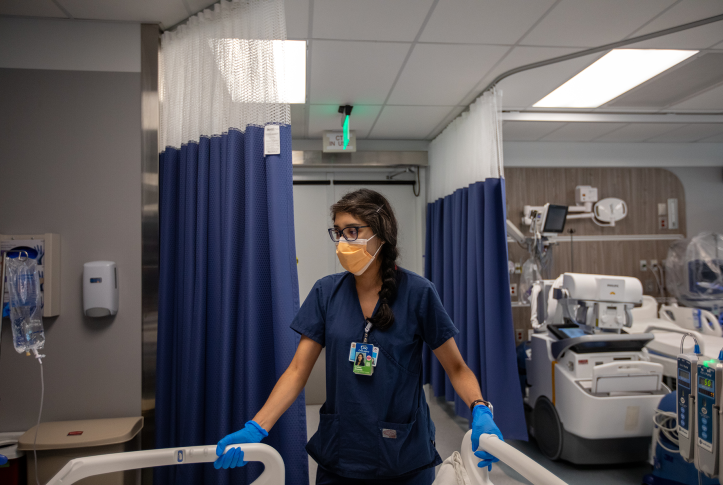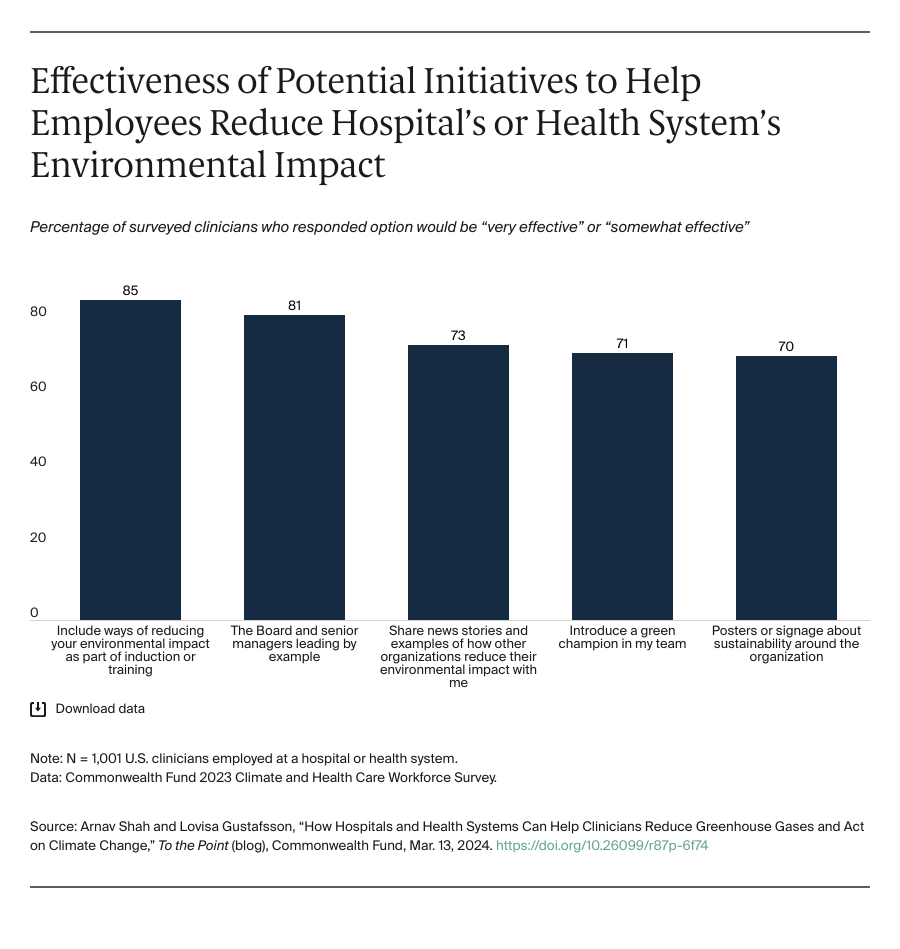Many health care delivery systems across the United States have pledged to reduce their greenhouse gas emissions. Health care workers — who must play a central role in these efforts — want their employers to take on decarbonization activities. About four of five clinicians surveyed said it’s important for their hospital to address climate change and that doing so is aligned with their organization’s mission. Further, health systems’ approaches to climate change can be a powerful draw for attracting staff; about six of 10 clinicians surveyed said a prospective employer’s policies and actions on climate change would impact their decision to apply for a job.
This post uses data from the Commonwealth Fund 2023 Climate and Health Care Workforce Survey of 1,001 U.S. clinicians about their views on health systems and climate change. The people surveyed worked at a hospital or a health system comprising one or more hospitals. (See “How We Conducted This Survey” for further details on the survey and methodology.)
In addition to wanting their employers to act on climate change, clinicians want to be part of the solution. More than three-quarters (76%) of surveyed clinicians said they were likely or extremely likely to take personal actions at work like reducing energy consumption, reducing paper usage, and being more efficient with water to help reduce their organization’s environmental impact.
Health systems can help increase clinician engagement when it comes to taking climate action at work by helping them understand the link between individual action and organizational impact. Surveyed clinicians were asked how their employers could encourage or enable them to reduce their environmental impact at work. They felt that understanding the following impacts would encourage them to a great extent: how reducing climate impact saves clinicians’ time (42%), how it provides organizational financial savings (41%), how it benefits the health of their patients and the public (41%) or the health of themselves and colleagues (40%), and how it can fit into their roles at the organization (35%).
The survey found that clinicians were not offered trainings that could help them identify and implement decarbonization steps in their jobs. Less than half (42%) of surveyed clinicians said their employers are currently offering refresher or reminder trainings on waste sorting and proper material use. Even fewer said their employers were offering continuing medical education or grand rounds (30%) or required annual staff trainings (27%) about incorporating decarbonization activities into their jobs.






